Flu. Pneumonia. Anxiety. Coronavirus.
Theresa Glass rattled through all the possibilities as she worried about the heavy feeling in her chest.
But a heart attack?
That didn’t seem possible even as she arrived at the emergency department at Spectrum Health Butterworth Hospital.
“It wasn’t a sharp pain,” she said. “It was a like a heaviness that grew with time.”
It didn’t take long for Theresa to realize the emergency department was exactly where she needed to be.
She had indeed suffered a heart attack.
“She is very fortunate,” said Ryan Madder, MD, an interventional cardiologist. “She sought treatment for her heart attack and, as a result, she is going to have a good prognosis going forward.”
One of her coronary arteries, known as the widowmaker, was 100% blocked. Two other arteries had blockages of 90% and 95%.
“When any of the coronary arteries suddenly close, some people will develop rhythm issues with their heart almost immediately. (They will go into cardiac arrest) and they will die before they ever get to the hospital,” Dr. Madder said.
“She is very fortunate that didn’t happen to her.”
Dr. Madder placed three stents to open Theresa’s arteries.
“It’s still really hard to believe,” said Theresa, 46, a patient services representative for Spectrum Health. She credits the emergency department and cardiology teams with saving her life.
“I am very grateful to them and to God,” she said. “I am really thankful to be alive.”
Protecting patients, staff
Health officials worry some patients are delaying medical care when they notice early signs of a stroke or heart attack because of concerns about COVID-19 at the hospital.
“The coronavirus has instilled a lot of fear in people,” said emergency department nurse manager Kendra Peot. “Because of that, some people who need to seek treatment and have interventions done are not doing that soon enough.”
But the emergency department is ready and able to care for patients.
“The doctors and nurses are here doing their same work every day,” she said. “We have just added on safety nets to protect everybody in terms of COVID-19.”
As for Theresa, Peot said, “We are glad she came in and I would encourage anybody else to do the same.”
Waking up to chest pain
In hindsight, Theresa wonders if she felt signs of her blocked arteries the week before her heart attack. In the past six months, she often felt short of breath.
“I thought I was coming down with something or I was tired or needed to work out more,” she said.
And in the past couple of weeks, she experienced episodes of tightness in her chest. She thought it might be caused by anxiety. When she calmed herself, the pain dissipated.
Over the weekend, she began to feel tired and achy and noticed some shortness of breath when she talked. Worried she could have COVID-19, she underwent screening and received a test for the coronavirus that Sunday.
In the early hours of Monday morning, she awoke from a sound sleep with a distinctly uncomfortable feeling in her chest. The heavy feeling moved toward her left shoulder.
“When I talked more than a few words, my chest would feel like it was squeezed so tight,” she said.
Still, the pain eased when she forced herself to relax.
It is a common misconception that a heart attack always causes severe pain in the chest, Dr. Madder said. While that is the case for some people, others describe a feeling of pressure or heaviness in their chest—just as Theresa did.
“Oftentimes, a heart attack can cause very mild chest discomfort,” he said.
“It’s important for people to recognize if they feel any sensation in their chest that is new, they need to contact their physician. And if it’s an uncomfortable sensation, they need to call 911 or seek emergency treatment.”
Early that morning, Theresa checked her COVID-19 test result: Negative.
She then called her doctor’s office and described her symptoms, thinking she might have pneumonia.
At about 9:30 a.m.—four hours after she awakened with chest pain—Theresa arrived at the emergency department.
By that point, she said, “My whole chest and left shoulder felt really uncomfortable. It was never awful, awful pain, but it was definitely uncomfortable.”
‘Calm and safe’
Theresa expected to encounter a busy emergency department.
“I thought it would be crazy there,” she said. “But it was calm and safe and good. And just still.”
She didn’t delay her trip to the emergency department because of fears of COVID-19.
“I wasn’t putting it off,” she said. “I just didn’t know what was happening.”
Still, in the back of her mind, she did worry about her risks for exposure to the virus. She felt more at ease when she saw the steps the staff took to protect her and each other.
“You can tell the emergency department team care about each other and like working together,” she said. “I remember thinking at that moment I didn’t have to be worried. It’s still good care. They know what they are doing.”
Not realizing her chest pain signaled a heart issue, Theresa didn’t want to waste valuable staff time to address what might be a minor health concern. The staff reassured her she did the right thing in seeking medical care.
“If you are experiencing anything you feel is life-threatening, I would say come in. Don’t delay,” said Mark Crystal, RN, who cared for Theresa in the emergency department. “I would rather have you come in and have it be nothing than stay home and regret it later.”
While in the hospital recovering, visitor restrictions in place because of the pandemic meant Theresa’s family couldn’t visit her.
But Theresa assured her husband, Chad, and her kids, Carter, Ellie and Jake, that she didn’t feel isolated. They kept in touch with phone calls and video chats.
“I wasn’t really lonely because I knew I had tons of support,” she said.
One evening, her family stood below her sixth-floor window at Spectrum Health Fred and Lena Meijer Heart Center and waved to her as they talked on the phone.
Two days after her heart attack, Theresa went home from the hospital. She is taking medication, learning about lifestyle changes and planning to do cardiac rehab.
“I will adjust my life,” she said. “I want to live, so I am going to make some changes.”
And already, she feels stronger.
“I feel a million times better,” she said. “I’m so thankful for how it all happened.”
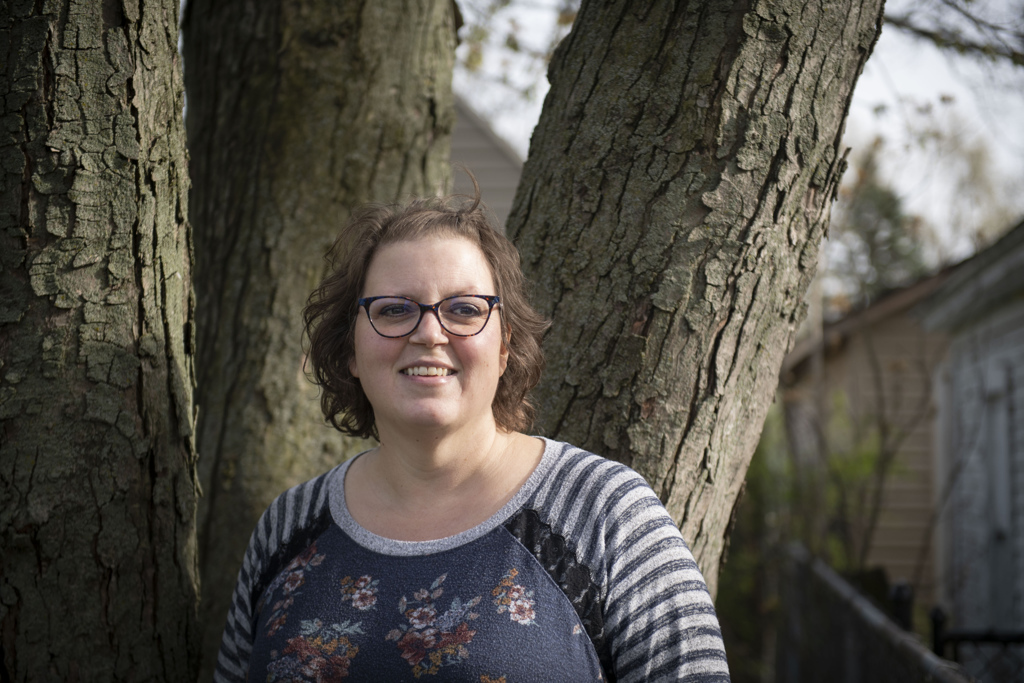
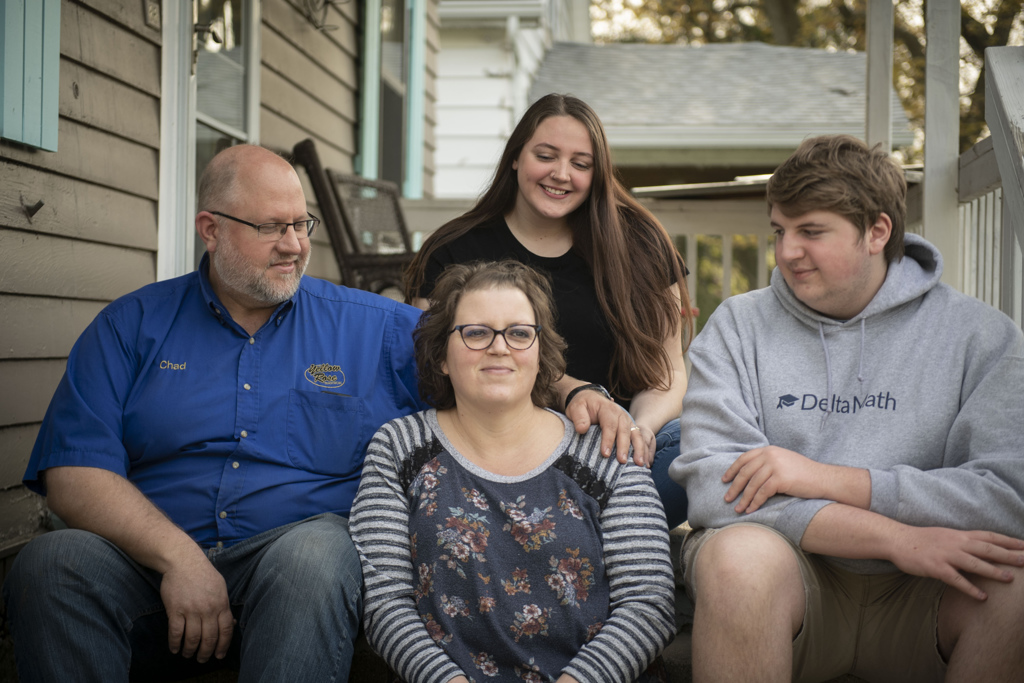
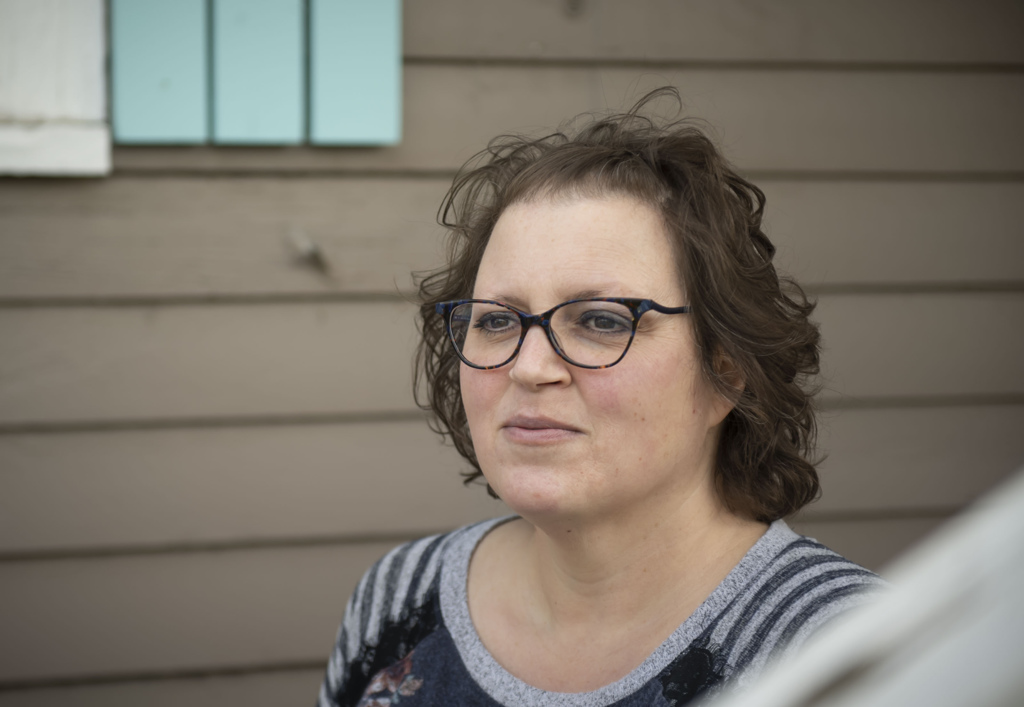
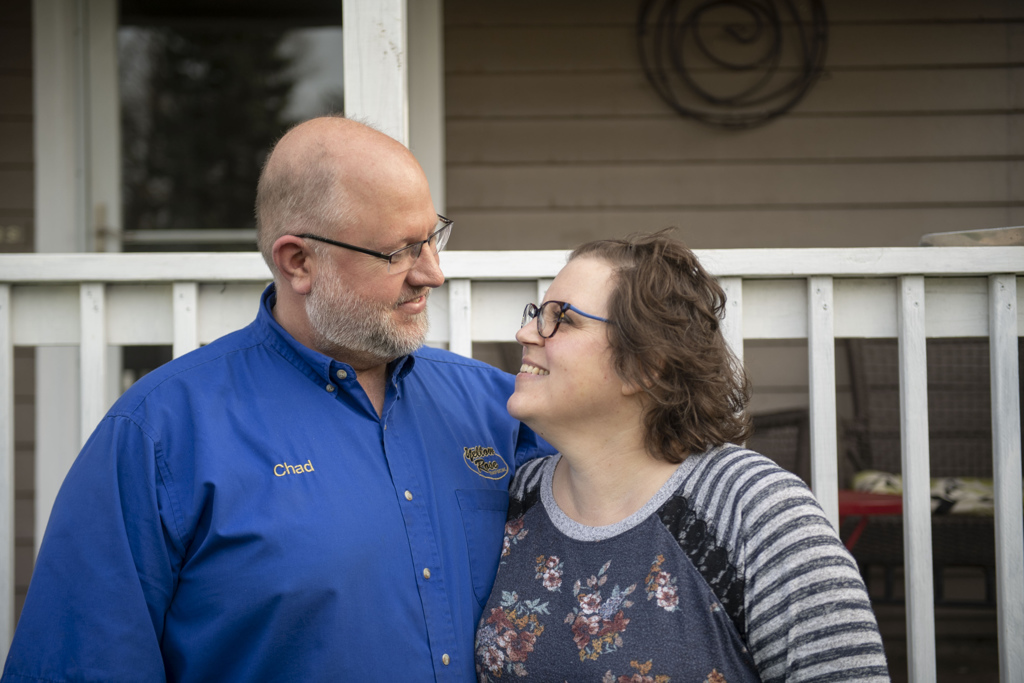
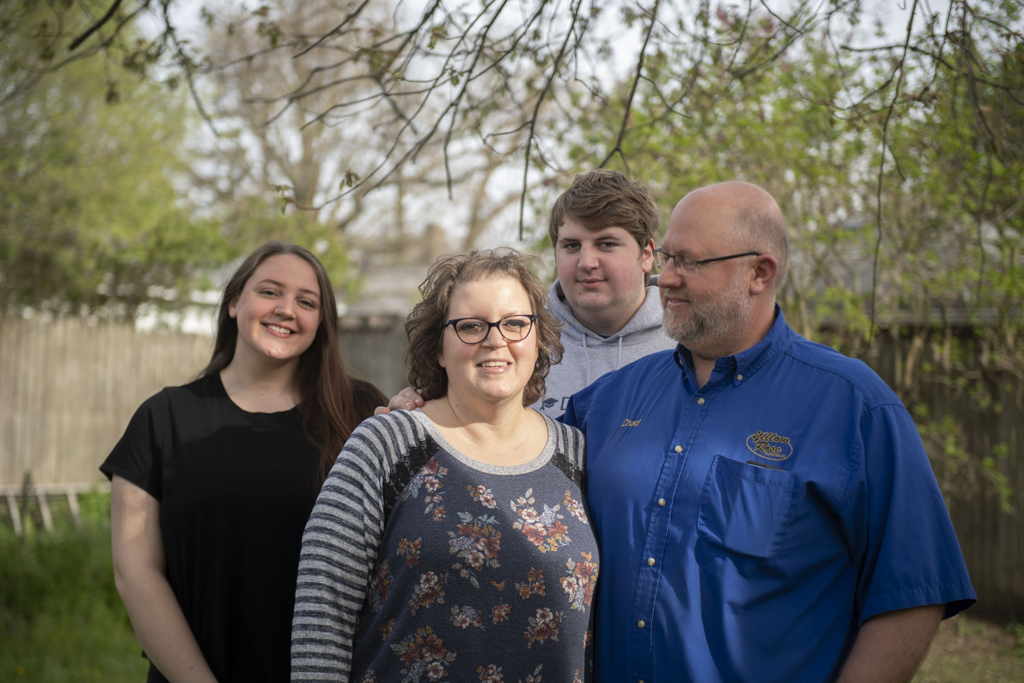
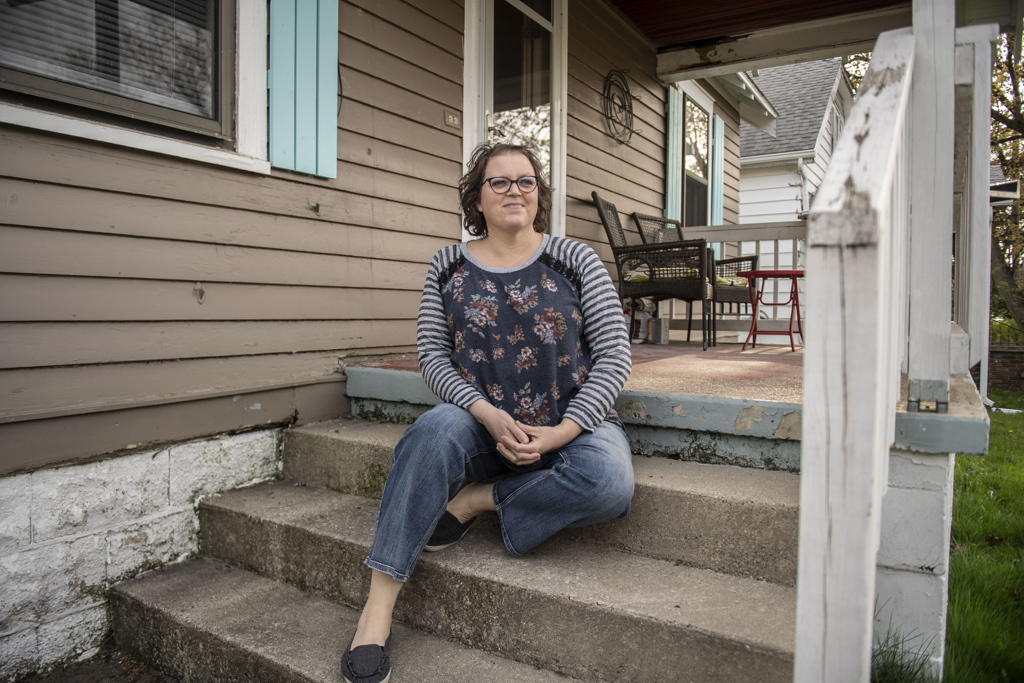

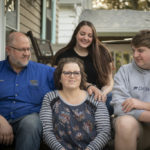
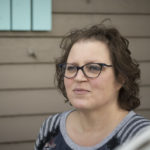
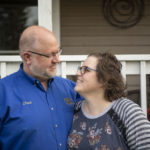
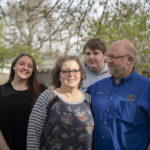
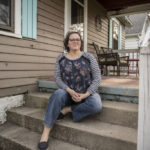

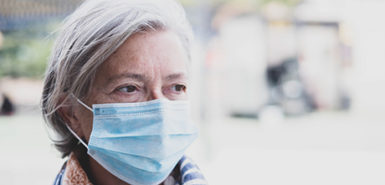 /a>
/a>
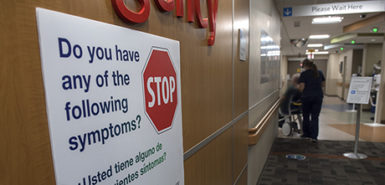 /a>
/a>
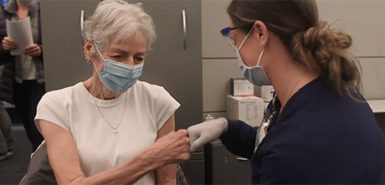 /a>
/a>
I just want to say Thank You for Saving Teresa’s Life !!!
This is an Awsome Family and they Love Each Other, Many Others and the Lord With All there Heart !!!
Even when the Physical Part is Broken, the Spiritual Part is Always felt !!! Thanks Again for Loving her Back through these Tuff Times and Being there for so Many Others !!!
With Great Gratitude !!! Rg